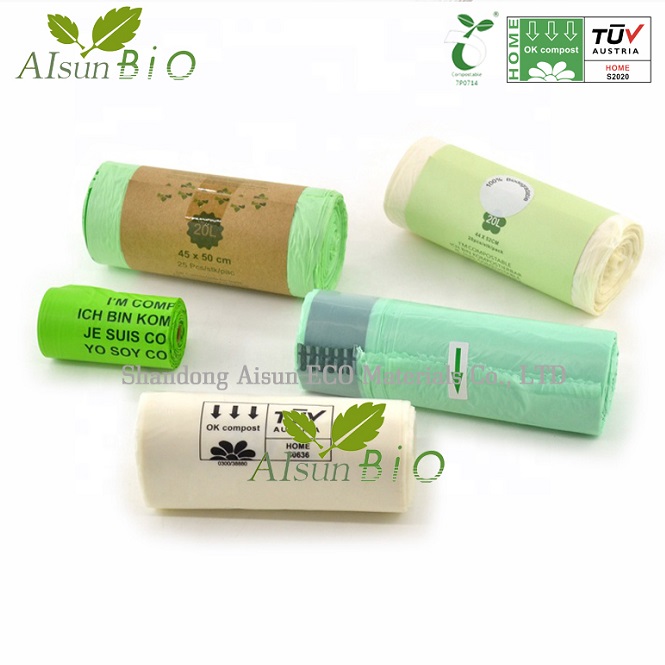On November 30, the European Commission released the “Policy Framework for Bio-based, Biodegradable and Compostable Plastics”, which further clarifies the bio-based, biodegradable and compostable plastics and stipulates the need to ensure their production and consumption Conditions that have a positive impact on the environment.
Bio-based
For “biobased,” the term should only be used when indicating an accurate and measurable share of biobased plastic content in a product, so consumers know how much biomass is actually used in the product. Furthermore, the biomass used must be sustainably sourced and not harmful to the environment. These plastics should be sourced to meet sustainability criteria. Producers should prioritize organic waste and by-products as feedstock, thereby minimizing the use of primary biomass. When primary biomass is used, it must be ensured that it is environmentally sustainable and does not compromise biodiversity or ecosystem health.
Biodegradable
For “biodegradation”, it should be clear that such products should not be littered, and it should be stated how long it takes for the product to biodegrade, under what circumstances and under what environment (such as soil, water, etc.) to biodegrade. Products that are likely to be littered, including those covered by the Single-use Plastics Directive, cannot claim or be labeled as biodegradable.
Mulches used in agriculture are good examples of suitable applications for biodegradable plastics in open environments, provided they are certified to the appropriate standards. To this end the Commission will require revisions to existing European standards to specifically take into account the risk of biodegradation of plastic residues in soil entering water systems. For other applications where biodegradable plastics are considered suitable, such as tow ropes used in the fishing industry, products used in tree protection, plant clips or lawn trimmer cords, new test method standards should be developed.
Oxo-degradable plastics are banned because they do not provide proven environmental benefits, are not fully biodegradable, and negatively impact the recycling of conventional plastics.
Compostable
“Compostable plastics” are a branch of biodegradable plastics. Only industrial compostable plastics that meet the relevant standards should be marked as “compostable” (there are only industrial composting standards in Europe, no home composting standards). Industrial compostable packaging should show how the item was disposed of. In home composting, it is difficult to achieve complete biodegradation of compostable plastics.
Potential benefits of using industrially compostable plastics are higher capture rates of biowaste and lower contamination of composts with non-biodegradable plastics. High-quality compost is more conducive to use as an organic fertilizer in agriculture and does not become a source of plastic pollution to soil and groundwater.
Industrial compostable plastic bags for the separate collection of biowaste are a beneficial application. The bags could reduce plastic pollution from composting, as traditional plastic bags, including debris that remains even after action is taken to remove them, is a pollution problem in the biowaste disposal system currently in use across the EU. Since December 31, 202, biowaste must be collected or recycled separately at the source, and countries such as Italy and Spain have introduced procedures for separate collection of biowaste: compostable plastic bags have reduced biowaste pollution and increased biowaste of catch. However, not all member states or regions support the use of such bags, as specific composting methods are required and cross-contamination of waste streams may occur.
EU-funded projects already support research and innovation related to bio-based, biodegradable and compostable plastics. The goals focus on ensuring the environmental sustainability of the procurement and production process, as well as the use and disposal of the final product.
The committee will promote research and innovation aimed at designing circular bio-based plastics that are safe, sustainable, reusable, recyclable and biodegradable. This includes evaluating the benefits of applications where bio-based materials and products are both degradable and recyclable. More work is needed to assess the net greenhouse gas emissions reductions of bio-based plastics compared to fossil-based plastics, taking into account the lifetime and the potential for multiple recycling.
The biodegradation process needs to be further explored. This includes ensuring that bio-based plastics used in agriculture and other uses biodegrade safely, taking into account possible transfer to other environments, biodegradation time frames and long-term impacts. It also includes minimizing any negative effects, including long-term effects, of additives used in biodegradable and plastic products. Among the range of potential non-packaging applications for compostable plastics, absorbent hygiene products deserve special attention. Research is also needed on consumer behavior and biodegradability as a factor that may influence littering behaviour.
The purpose of this policy framework is to identify and understand these plastics and to guide future policy developments at EU level, such as ecodesign requirements for sustainable products, the EU taxonomy for sustainable investments, funding schemes and related discussions in international forums
Post time: Dec-01-2022

